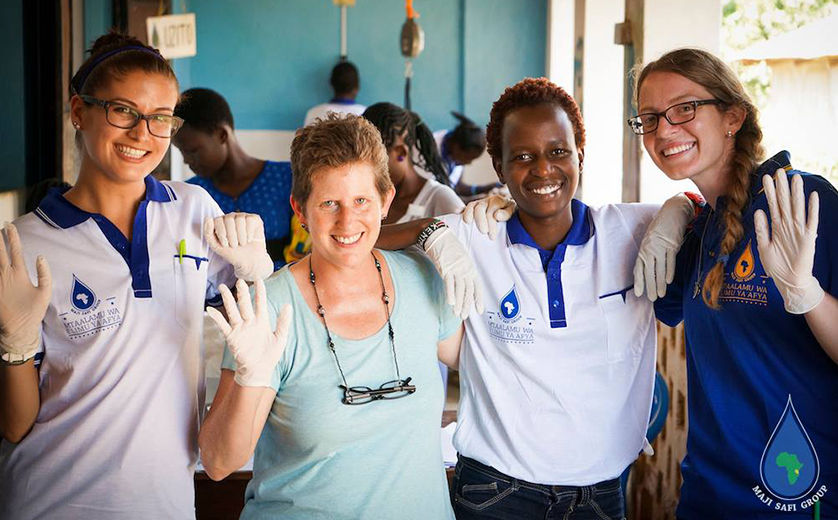This spring and summer, three new field-based courses will provide Brown School students and faculty the opportunity to learn, apply knowledge and collaborate with professionals and communities around the world. Each course emphasizes how insights and methods from various disciplines can contribute to addressing a contemporary challenge.
“These field-based courses are an excellent opportunity for our students to put into action what they learn at the Brown School,” said Carolyn Lesorogol, associate dean for global strategy and programs.
“Faculty, staff and our partner organizations are collaborating to ensure high quality, rigorous and enjoyable experiences that will build students’ capabilities,” she said. “Hands-on learning, cultural immersion and exposure to real-world problems are critical elements to prepare students for careers in social work, public health and public policy.”
Following a competitive application process, students were selected for the courses considering their qualifications, academic interests and career goals. Travel costs for each course are significantly subsidized by the Brown School, to make these experiences as accessible as possible.
In Germany and Tanzania, select students also have the opportunity to extend their stay and pursue an international practicum placement, further developing their connections and skills.
“Policy Making, Advocacy and Analysis in the U.S. Legislative System”
Washington, D.C.
During a one-week immersion in the nation’s capital, students will explore policy practice in government, think tanks and advocacy groups. Participants will learn from policy and advocacy experts, as well as social science leaders on topics including: veterans, behavioral health, health care reform, early childhood development and education.
This course also involves instruction in St. Louis, with pre-trip coursework emphasizing policy analysis methods and post-trip lessons focused on students’ policy leadership projects. Students will also learn about the fundamentals of the legislative process, research-based advocacy using a lens of non-oppressive community organizing, and how social scientists affect social policy around the world. The course will be co-led by Sarah Moreland Russell, a senior scholar at the Brown School, and Dean Mary McKay.
“Refugee Empowerment, Physical Activity and Urban Development”
Berlin, Germany
Brown School students, in conjunction with social workers and agency professionals based in Germany, will gain an understanding of the challenges arising from the recent refugee influx into Germany – particularly from the perspective of schools and housing agencies.
The course will be led by Heather Cameron, the Brown School’s inaugural Michael B. Kaufman Professor of Practice in Social Entrepreneurship. Students will also collaborate with Cameron’s nonprofit, Camp Group, which focuses on physical activity and community events to improve integrating young refugees and their parents into schools and community. This 12-day course will include speakers, workshops and networking opportunities in one of the world’s greatest hubs of social entrepreneurship and innovation.
“Using Participatory Approaches for Community Well-Being”
Shirati, Tanzania
This 18-day course will focus on issues that are key to global health and international social and economic development: community development techniques, operation of nonprofit organizations in international settings, water and sanitation issues, as well as the Community Health Worker model. The course will be led by Carolyn Lesorogol, the Brown School’s associate dean for global strategy and programs.
Students will work in close collaboration with staff of Maji Safi, a non-governmental organization based in Shirati, Tanzania, to design and implement a community engagement process using participatory techniques. The goal is to assess community well-being and needs among fishing communities in the rural Shirati area and to envision next steps for community planning. Students will hone their skills related to building rapport and facilitating inclusive and participatory group processes.
